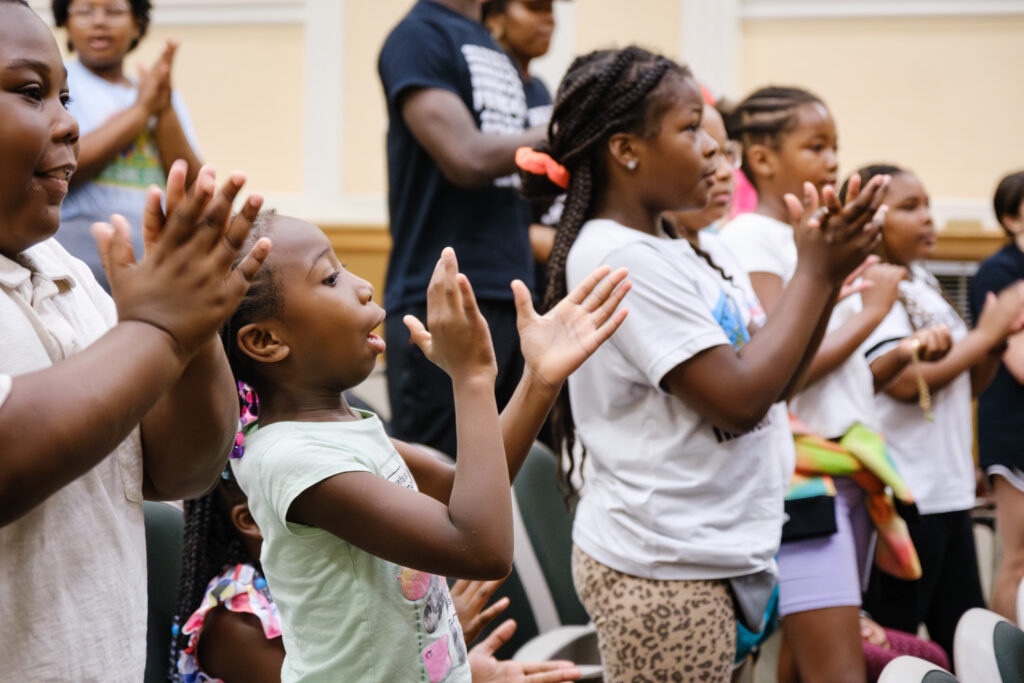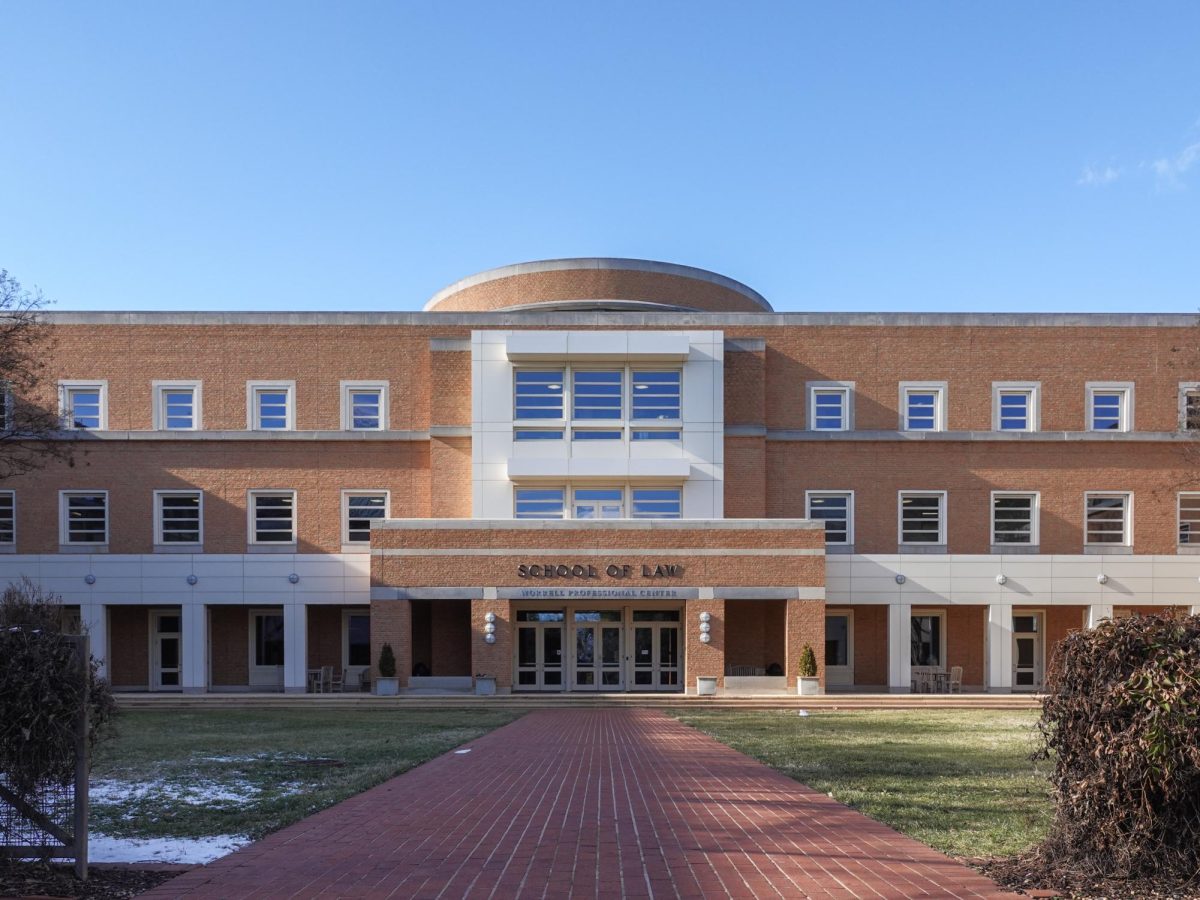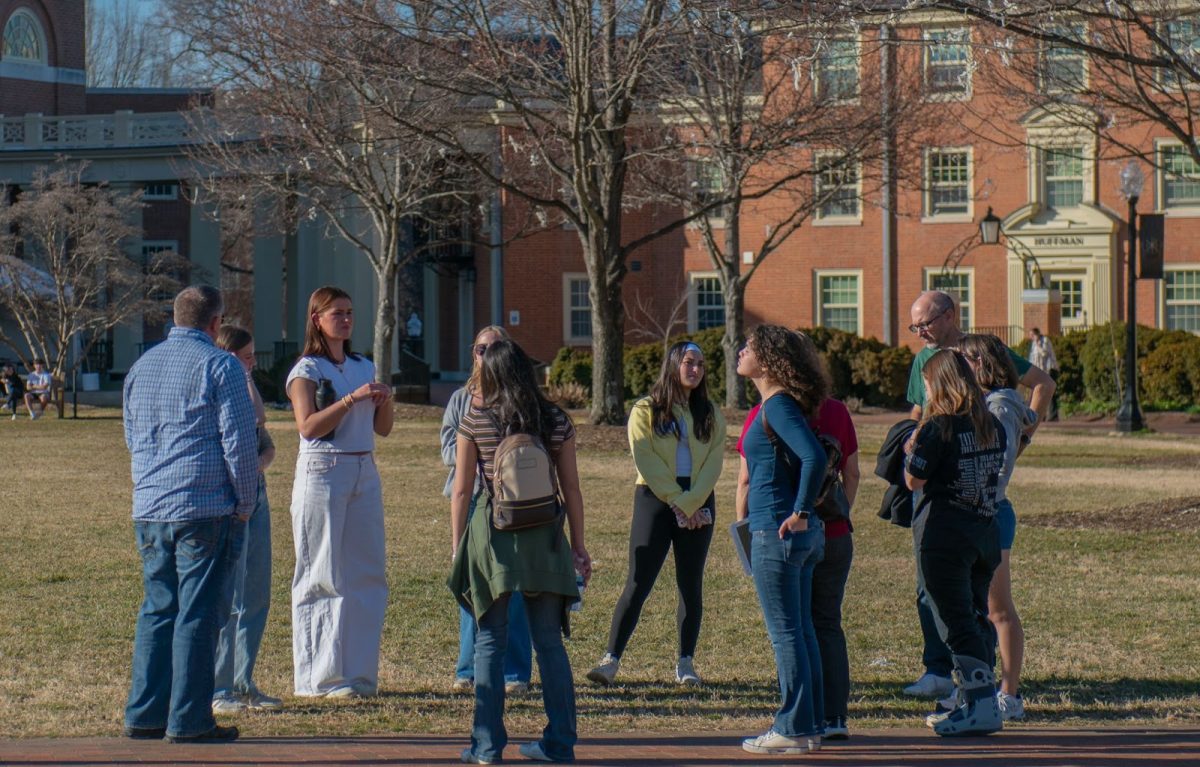Students gathered in Annenberg Forum in Carswell Hall to listen to a guest speaker, discuss readings in Tribble classrooms and chat over lunch in the Pit.
This could describe any ordinary day at Wake Forest, but these aren’t your typical college students. They’re elementary-aged children who have come to campus on a hot summer day to participate in Freedom School.
Wake Forest hosts this free six-week program each summer to encourage a love for reading among the youngest students in Winston-Salem. Executive Director Dani Parker-Moore and her colleagues founded the program in 2017.
“When I was in graduate school, I was a servant leader intern at the Freedom School at Duke University,” Parker-Moore said. “We went through a very transformative experience in national training… you work with the kids for six weeks over the summer. We were on the campus of Duke University… I had a group of second and third-graders.”
Contemporary Freedom School programs are inspired by the Mississippi Freedom Summer Project of 1964, which aimed to counteract the unsatisfactory education Black children received in segregated schools by teaching about Black history and political activism. Today, Freedom Schools offer high-quality literacy opportunities and remediate summer learning loss for disadvantaged students. Ultimately, the program seeks to shape students into independent thinkers, problem solvers, and agents of change in their community
Freedom School’s primary theme is, “I can make a difference.” Each week, the school breaks down this concept into smaller elements. In turn, students learn about making a difference in themselves, their communities and the world.
Wake Forest’s Freedom School
The Wake Forest site, which is part of a larger network of Freedom Schools around Winston-Salem, can host up to 50 children at a time and maintains a waitlist. Freedom School is offered at no cost to families due to grants provided by nonprofits, including the Children’s Defense Fund and AmeriCorps Vista, along with contributions from Project Pumpkin and other Wake Forest initiatives. The school employs six or seven college students each year who serve as tutors and mentors.
Senior Ashleigh Hampson served as a student mentor for the Freedom School in 2023. As a Servant Leader Intern (SLI), she assisted a teacher in leading a class of 10 children throughout the summer.
“They were all really special kids,” Hampson said. “It was very rewarding to see their confidence and skills develop over the course of the summer.”
One University partner is Campus Kitchen, which supplied the Freedom School with food. The Office of Civic and Community Engagement also partnered with the Freedom School to provide school supplies and potential students to serve as mentors.
Wake Forest’s Freedom School uses an integrated reading curriculum that focuses on five components: high-quality academic enrichment, parent and family development, civil engagement and social action, intergenerational servant leadership development, and nutritional and mental health.
A Day at Freedom School
A typical day at Freedom School begins in Annenberg Forum in Carswell Hall, where participants sing together during “Harambe,” a reference to the Swahili word for “uniting” or “pulling together.”
Harambe helps to set the tone for the school’s mantra: “We believe in ourselves and what we can do.” Next, a guest reader from the community encourages scholars to be changemakers. Lucy Flynn, a 2024 servant leader, said that students united to engage with local issues.
“This year, [students from] the Winston-Salem sites marched on Wake Forest’s campus against book banning and students came together and made signs and posters,” said Flynn.
Next, students progress to instruction time, typically held in Tribble Hall. The school emphasizes literacy skills, and students are exposed to academically enriching and culturally diverse books with inspiring protagonists who can serve as role models for civic action. Students are encouraged to take books home to start their personal libraries.
“It is a well-rounded program, but the integrated reading curriculum is at the core,” Parker-Moore said. “It helps encourage a love of literacy and reading, and then a love and a commitment for how you can make your community better.”
After classes and instructional reading time, students eat lunch at the Pit and participate in STEM, musical, and athletic afternoon activities.
Once a week, students take field trips and visit different attractions across Winston-Salem, including the Kaleideum Museum, water parks and bowling alleys.
“I loved the field trips because I loved being able to connect with the kids outside of the classroom,” Hampson said. “The program did a really great job of making the learning fun and breaking up lessons with activity.”
To maintain their child’s eligibility for the Freedom School, a parent or guardian must attend a weekly meeting, which allows the organization to engage closely with families.
“Parent meetings range from themes of financial literacy to parenting, mental health, and social/emotional learning,” Parker-Moore said.
Freedom School is a unique summer experience that not only grows the minds of participating children but also builds community among the parents and servant leaders working with the new generation.
“Freedom School showed me and the scholars the ways in which school can be fun and engaging,” Flynn said. “Whether it was through Harambe, [reading] time, or STEM activities, we were able to come together and activate our minds and bodies throughout the day.”










